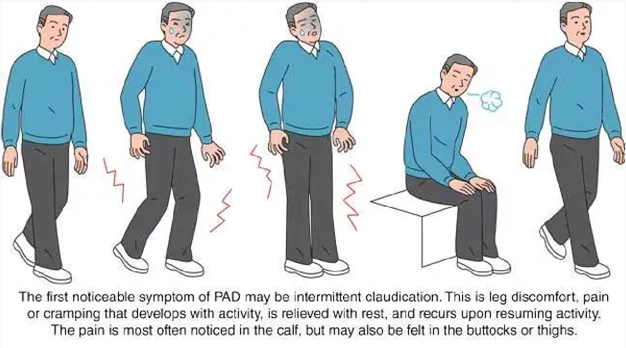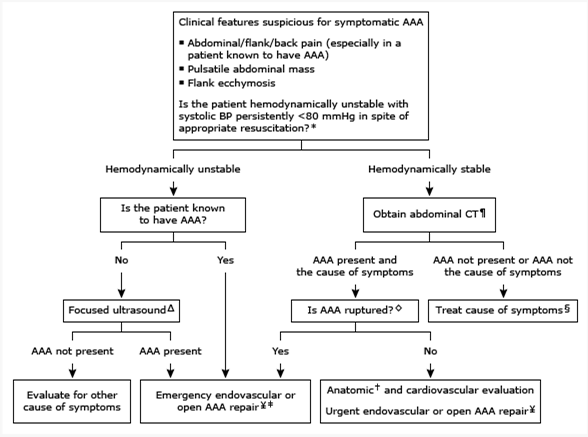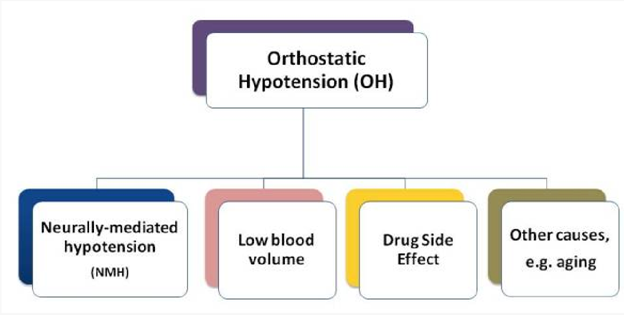A nurse is assessing a client with intermittent claudication. What client statement supports this information?
"My feet feel like I have pins and needles."
"When I stand or sit too long, my feet swell."
"My legs get a painful cramp when I walk over 30 minutes."
"I get short of breath when I climb a lot of stairs.”
The Correct Answer is C
The client statement that supports the information of intermittent claudication is: "My legs get a painful cramp when I walk over 30 minutes.": Intermittent claudication is a symptom of peripheral artery disease (PAD) characterized by pain, cramping, or fatigue in the muscles of the lower extremities, typically the calves, thighs, or buttocks. This pain is usually triggered by physical activity, such as walking, and is relieved with rest. The pain is caused by inadequate blood flow and oxygen supply to the muscles due to narrowed or blocked arteries.

The other client statements do not specifically indicate intermittent claudication:
"My feet feel like I have pins and needles": This sensation of pins and needles is often associated with peripheral neuropathy, which is a condition involving nerve damage and does not directly relate to intermittent claudication.
"When I stand or sit too long, my feet swell": This statement suggests the possibility of venous insufficiency rather than intermittent claudication. Venous insufficiency involves impaired blood return from the legs to the heart and may result in swelling, aching, or heaviness in the legs.
"I get short of breath when I climb a lot of stairs": This symptom is more indicative of cardiovascular or respiratory issues, such as heart or lung disease, rather than intermittent claudication. It suggests that the client may experience exercise intolerance due to cardiopulmonary limitations.
Nursing Test Bank
Naxlex Comprehensive Predictor Exams
Related Questions
Correct Answer is A
Explanation
Based on the information provided, the nurse should anticipate that the medical treatment prescribed for a client with an abdominal aortic aneurysm less than 3 cm in size would be regular ultrasound screenings every six (6) months.
Monitoring the size of the abdominal aortic aneurysm through ultrasound is a common approach for managing small aneurysms. Regular ultrasound screenings allow healthcare providers to track the growth rate of the aneurysm and determine if any intervention, such as surgical repair, is necessary as the aneurysm progresses in size.
Let's review the other options and explain why they are not the most appropriate treatments for an abdominal aortic aneurysm less than 3 cm in size:
Intravenous pyelogram yearly: An intravenous pyelogram is an imaging test used to evaluate the urinary system, specifically the kidneys, ureters, and bladder. It is not directly related to the management or monitoring of an abdominal aortic aneurysm.
Assessment of abdominal girth monthly: Assessing the abdominal girth may be a part of the overall assessment of the client's condition, but it is not the primary treatment for managing an abdominal aortic aneurysm. Monitoring the aneurysm size through regular ultrasound screenings is a more specific and accurate approach.
Repair of abdominal aortic aneurysm: Repair of an abdominal aortic aneurysm is typically indicated when the aneurysm reaches a certain size threshold or if it poses a high risk of rupture. For an aneurysm less than 3 cm in size, repair is usually not the initial treatment option. Instead, regular monitoring through ultrasound screenings is recommended to assess the aneurysm's growth rate and determine the appropriate time for intervention.

Correct Answer is A
Explanation
The information that the nurse should include in the teaching plan for a client with hypertension who is on alpha blockers and at risk for postural hypotension is: Change positions slowly.
Alpha blockers are a class of medications commonly prescribed for hypertension. One potential side effect of alpha blockers is postural hypotension, which is a sudden drop in blood pressure when changing positions, such as from sitting to standing. To minimize the risk of postural hypotension, it is important for the client to change positions slowly. The nurse should advise the client to take their time when transitioning from lying down, sitting, or standing, allowing their body to adjust and stabilize their blood pressure.

The other options are not appropriate or helpful in managing postural hypotension:
Check blood pressure every day for signs of rebound hypertension: Rebound hypertension refers to a sudden increase in blood pressure that can occur when discontinuing certain antihypertensive medications. It is not directly related to postural hypotension. Regular blood pressure monitoring is important for managing hypertension, but it is not specifically related to postural hypotension or alpha blockers.
Do not become dependent on canes, walkers, or handrails: Assistive devices like canes, walkers, or handrails can provide support and stability for individuals who experience balance issues or are at risk of falls. It is not necessary to discourage their use unless there are specific contraindications or safety concerns.
Eat plenty of salty food to prevent hypotension: Increasing salt intake is generally not recommended for individuals with hypertension or those at risk of postural hypotension. A high-sodium diet can contribute to elevated blood pressure and is generally discouraged. The nurse should instead encourage a balanced diet that includes appropriate sodium intake based on the client's healthcare provider's recommendations.
Whether you are a student looking to ace your exams or a practicing nurse seeking to enhance your expertise , our nursing education contents will empower you with the confidence and competence to make a difference in the lives of patients and become a respected leader in the healthcare field.
Visit Naxlex, invest in your future and unlock endless possibilities with our unparalleled nursing education contents today
Report Wrong Answer on the Current Question
Do you disagree with the answer? If yes, what is your expected answer? Explain.
Kindly be descriptive with the issue you are facing.
